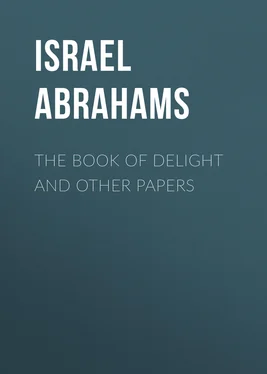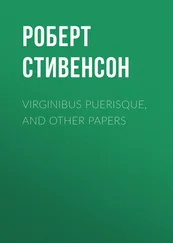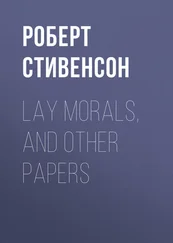Israel Abrahams - The Book of Delight and Other Papers
Здесь есть возможность читать онлайн «Israel Abrahams - The Book of Delight and Other Papers» — ознакомительный отрывок электронной книги совершенно бесплатно, а после прочтения отрывка купить полную версию. В некоторых случаях можно слушать аудио, скачать через торрент в формате fb2 и присутствует краткое содержание. Жанр: foreign_poetry, Поэзия, foreign_antique, foreign_prose, на английском языке. Описание произведения, (предисловие) а так же отзывы посетителей доступны на портале библиотеки ЛибКат.
- Название:The Book of Delight and Other Papers
- Автор:
- Жанр:
- Год:неизвестен
- ISBN:нет данных
- Рейтинг книги:5 / 5. Голосов: 1
-
Избранное:Добавить в избранное
- Отзывы:
-
Ваша оценка:
- 100
- 1
- 2
- 3
- 4
- 5
The Book of Delight and Other Papers: краткое содержание, описание и аннотация
Предлагаем к чтению аннотацию, описание, краткое содержание или предисловие (зависит от того, что написал сам автор книги «The Book of Delight and Other Papers»). Если вы не нашли необходимую информацию о книге — напишите в комментариях, мы постараемся отыскать её.
The Book of Delight and Other Papers — читать онлайн ознакомительный отрывок
Ниже представлен текст книги, разбитый по страницам. Система сохранения места последней прочитанной страницы, позволяет с удобством читать онлайн бесплатно книгу «The Book of Delight and Other Papers», без необходимости каждый раз заново искать на чём Вы остановились. Поставьте закладку, и сможете в любой момент перейти на страницу, на которой закончили чтение.
Интервал:
Закладка:
In the evening the king summoned the woman secretly. She came, and the king praised her beauty and her wisdom. His heart, he said, was burning with love for her, but he could not wed another man's wife. "Slay thy husband to-night, and tomorrow be my queen." With a smile, the woman consented; and the king gave her a sword made of tin, for he knew the weak mind of woman. "Strike once," he said to her; "the sword is sharp; you need not essay a second blow." She gave her husband a choice repast, and wine to make him drunken. As he lay asleep, she grasped the sword and struck him on the head; and the tin bent, and he awoke. With some ado she quieted him, and he fell asleep again. Next morning the king summoned her, and asked whether she had obeyed his orders. "Yes," said she, "but thou didst frustrate thine own counsel." Then the king assembled his sages, and bade her tell all that she had attempted; and the husband, too, was fetched, to tell his story. "Did I not tell you to cease your praises of women?" asked the king, triumphantly.
IN DISPRAISE OF WOMAN
The fox follows up these effective narratives with a lengthy string of well-worn quotations against women, of which the following are a few: Socrates, the wise and saintly, hated and despised them. His wife was thin and short. They asked him, "How could a man like you choose such a woman for your wrife?" "I chose," said Socrates, "of the evil the least possible amount." "Why, then, do you look on beautiful women?" "Neither," said Socrates, "from love nor from desire, but to admire the handiwork of God in their outward form. It is within that they are foul." Once he was walking by the way, and he saw a woman hanging from a fig-tree. "Would," said Socrates, "that all the fruit were like this."—A nobleman built a new house, and wrote over the door, "Let nothing evil pass this way." "Then how does his wife go in?" asked Diogenes.—"Your enemy is dead," said one to another. "I would rather hear that he had got married," was the reply.
"So much," said the fox to the leopard, "I have told thee that thou mayest know how little women are to be trusted. They deceive men in life, and betray them in death." "But," queried the leopard, "what could my wife do to harm me after I am dead?" "Listen," rejoined the fox, "and I will tell thee of a deed viler than any I have narrated hitherto."
THE WIDOW AND HER HUSBAND'S CORPSE
The kings of Rome, when they hanged a man, denied him burial until the tenth day. That the friends and relatives of the victim might not steal the body, an officer of high rank was set to watch the tree by night. If the body was stolen, the officer was hung up in its place. A knight of high degree once rebelled against the king, and he was hanged on a tree. The officer on guard was startled at midnight to hear a piercing shriek of anguish from a little distance; he mounted his horse, and rode towards the voice, to discover the meaning. He came to an open grave, where the common people were buried, and saw a weeping woman loud in laments for her departed spouse. He sent her home with words of comfort, accompanying her to the city gate. He then returned to his post. Next night the same scene was repeated, and as the officer spoke his gentle soothings to her, a love for him was born in her heart, and her dead husband was forgotten. And as they spoke words of love, they neared the tree, and lo! the body that the officer was set to watch was gone. "Begone," he said, "and I will fly, or my life must pay the penalty of my dalliance." "Fear not, my lord," she said, "we can raise my husband from his grave and hang him instead of the stolen corpse." "But I fear the Prince of Death. I cannot drag a man from his grave." "I alone will do it then," said the woman; "I will dig him out; it is lawful to cast a dead man from the grave, to keep a live man from being thrown in." "Alas!" cried the officer, when she had done the fearsome deed, "the corpse I watched was bald, your husband has thick hair; the change will be detected." "Nay," said the woman, "I will make him bald," and she tore his hair out, with execrations, and they hung him on the tree. But a few days passed and the pair were married.
And now the leopard interlude nears it close. Zabara narrates the dénouement in these terms:
THE LEOPARD'S FATE
The leopard's bones rattled while he listened to this tale. Angrily he addressed his wife, "Come, get up and follow me, or I will slay thee." Together they went with their young ones, and the fox was their guide, and they reached the promised place, and encamped by the waters. The fox bade them farewell, his head laughing at his tail. Seven days were gone, when the rains descended, and in the deep of the night the river rose and engulfed the leopard family in their beds. "Woe is me," sighed the leopard, "that I did not listen to my wife." And he died before his time.
THE JOURNEY BEGUN BY JOSEPH AND ENAN
The author has now finished his protest against his visitor's design, to make him join him on a roving expedition. Enan glares, and asks, "Am I a fox, and thou a leopard, that I should fear thee?" Then his note changes, and his tone becomes coaxing and bland. Joseph cannot resist his fascination. Together they start, riding on their asses. Then says Enan unto Joseph, "Carry thou me, or I will carry thee." "But," continues the narrator, Joseph, "we were both riding on our asses. 'What dost thou mean? Our asses carry us both. Explain thy words.'—'It is the story of the peasant with the king's officer.'"
THE CLEVER GIRL AND THE KING'S DREAM
A king with many wives dreamt that he saw a monkey among them; his face fell, and his spirit was troubled. "This is none other," said he, "than a foreign king, who will invade my realm, and take my harem for his spoil." One of his officers told the king of a clever interpreter of dreams, and the king despatched him to find out the meaning of his ominous vision. He set forth on his mule, and met a countryman riding. "Carry me," said the officer, "or I will carry thee." The peasant was amazed. "But our asses carry us both," he said. "Thou tiller of the earth," said the officer, "thou art earth, and eatest earth. There is snow on the hill," continued the officer, and as the month was Tammuz, the peasant laughed. They passed a road with wheat growing on each side. "A horse blind in one eye has passed here," said the officer, "loaded with oil on one side, and with vinegar on the other." They saw a field richly covered with abounding corn, and the peasant praised it. "Yes," said the officer, "if the corn is not already eaten." They went on a little further and saw a lofty tower. "Well fortified," remarked the peasant. "Fortified without, if not ruined within," replied the officer. A funeral passed them. "As to this old man whom they are burying," said the officer, "I cannot tell whether he is alive or dead." And the peasant thought his companion mad to make such unintelligible remarks. They neared a village where the peasant lived, and he invited the officer to stay with him overnight.
The peasant, in the dead of the night, told his wife and daughters of the foolish things the officer had said, though he looked quite wise. "Nay," said the peasant's youngest daughter, a maiden of fifteen years, "the man is no fool; thou didst not comprehend the depth of his meaning. The tiller of the earth eats food grown from the earth. By the 'snow on the hill' is meant thy white beard (on thy head); thou shouldst have answered, 'Time caused it.' The horse blind in one eye he knew had passed, because he saw that the wheat was eaten on one side of the way, and not on the other; and as for its burden, he saw that the vinegar had parched the dust, while the oil had not. His saying, 'Carry me, or I will carry thee,' signifies that he who beguiles the way with stories and proverbs and riddles, carries his companion, relieving him from the tedium of the journey. The corn of the field you passed," continued the girl, "was already eaten if the owner was poor, and had sold it before it was reaped. The lofty and stately tower was in ruins within, if it was without necessary stores. About the funeral, too, his remark was true. If the old man left a son, he was still alive; if he was childless, he was, indeed, dead."
Читать дальшеИнтервал:
Закладка:
Похожие книги на «The Book of Delight and Other Papers»
Представляем Вашему вниманию похожие книги на «The Book of Delight and Other Papers» списком для выбора. Мы отобрали схожую по названию и смыслу литературу в надежде предоставить читателям больше вариантов отыскать новые, интересные, ещё непрочитанные произведения.
Обсуждение, отзывы о книге «The Book of Delight and Other Papers» и просто собственные мнения читателей. Оставьте ваши комментарии, напишите, что Вы думаете о произведении, его смысле или главных героях. Укажите что конкретно понравилось, а что нет, и почему Вы так считаете.











